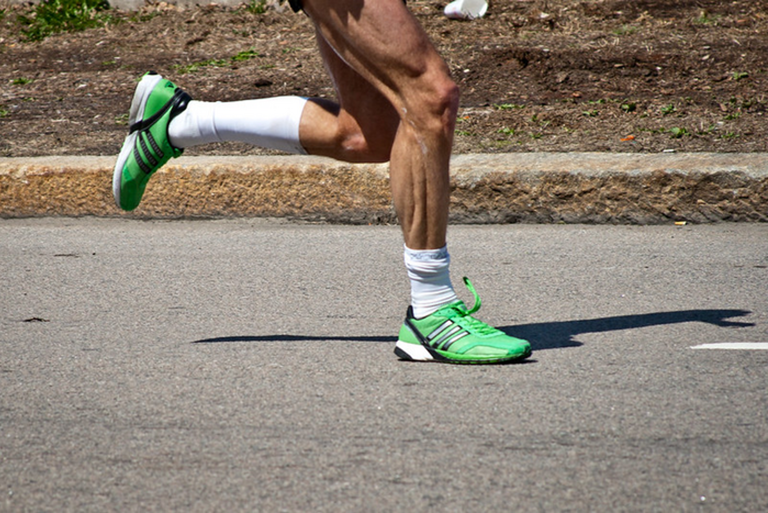Running could be just as effective at treating depression as medication, scientists find








Running could be just as effective at treating depression as medication, scientists find
Running could be just as effective at treating depression as medication, a breakthrough study has suggested in findings that could radically alter the way patients are treated.
- Researchers also found that running showed more benefits to an individual’s physical health than antidepressants, which had a slightly negative effect over time.
Despite this, the study found that adherence to running was lower than to medication, meaning more participants found it easier to follow a medical protocol than a fitness regime.
- The study compared the effects of antidepressants with running for anxiety, depression, and overall health in over 140 patients.
The research found that while both have the same benefits for mental health, a 16-week course of running over the same period scored higher in terms of physical health improvement, whereas antidepressants lead to a slightly worse physical condition.
- Scientists, including Brenda Penninx from VU, also found that the drop-out rate was much higher in the group that initially chose exercise.
The yet-to-be peer-reviewed findings were presented recently at the 36th ECNP Congress in Barcelona.
- In the study, patients were offered a choice of treatment of either antidepressants for 16 weeks, or group-based running therapy for 16 weeks.
Forty-five of the participants chose antidepressants while 96 participated in running that included aiming for two to three closely supervised 45-minute group sessions per week for the same period.
- Researchers say members of the group who chose antidepressants were slightly more depressed than the members of the group that chose to take running.
“This study gave anxious and depressed people a real-life choice, medication or exercise. Interestingly, the majority opted for exercise, which led to the numbers in the running group being larger than in the medication group,” Dr Penninx said.
- Antidepressant treatment required patients to adhere to their prescribed medication, and was not found to directly impact daily behaviors.
However, exercise was found to also address sedentary lifestyles often found in patients with depressive and anxiety disorders by encouraging them to go outside, set personal goals, improve their fitness, and participate in a group activity.
- But researchers also found that adherence to protocol was lower in the running group than in the antidepressant group, despite the initial preference for running over antidepressants.
While at the end of the trial, about half the number of participants in both groups showed improvement in depression and anxiety, the running group also had improvements in physical health markers like blood pressure, heart function, and weight.
The antidepressant group, on the other hand, showed slight deterioration in these metabolic markers, the study noted.
- “Antidepressants generally had a worse impact on body weight, heart rate variability, and blood pressure, whereas running therapy led to improved effects on general fitness and heart rate for instance,” Dr Penninx said.
While antidepressants have been found to be safe and effective, working for most people, scientists call for extending the treatment arsenal by implementing exercise therapy.
- “Telling patients to go run is not enough. Changing physical activity behavior will require adequate supervision and encouragement as we did by implementing exercise therapy in a mental health care institution,” Dr Pennix added.
- Story by Vishwam Sankaran •The Independent
Articles - Latest
- A yoga teacher says this five-minute stretch is all you need to maintain flexibility in your spine
- Can't do a deep squat? Use this coach's four-step plan
- 6 Reasons Your Feet Are So Itchy
- Surprising Benefits of Using Bay Leaves on Your Feet
- I run 50 miles a week and this is my go-to 20-minute yoga-for-runners workout to boost my flexibility
- How to do hanging leg raises with perfect form, according to trainers
- The two exercises everyone should add to their strength workouts to see results, according to an expert trainer
- 1 year of heavy strength training could offer 4 years of benefits, study suggests
- Research Has Unveiled How Many Sets You Need to Do to Build Muscle
- I did 50 frog crunches every day for a week — here's what happened to my abs
- 10 physio-approved exercises for runners that will help you build strength and mobility
- Forget sit-ups — this 3-move standing ab workout chisels your abs and obliques
- What to do when plantar fasciitis is so bad you can't walk
- Five exercises better than side bends to sculpt strong obliques
- Forget Russian Twists — this 10-minute stability ball workout targets your abs and glutes
- Professor explains how we are all doing one exercise wrong and it is causing us pain
- Supplies, Description, and Usage - Tech Nails-2
- Supplies, Description, and Usage - Tech Nails
- Exercises for Plantar Fasciitis
- Shoes, insoles and splints: Cushioning and support - Plantar fasciitis
- 10 best bum workouts and 25 bum exercises for a 🍑'ier butt
- The dos and don’ts of running when you’re over 40
- This 30-minute workout can be done from just about anywhere
- I teach stretching routines for a living — 3 exercises that strengthen your hips and open your hamstrings
- Somatic exercise has gone viral promising to lower cortisol levels, ease stress, and boost health - so, does it actually work?
Articles-Popular
- Home
- Calluses and Corns-4-Padding and Insoles To relieve Pressure
- Add Muscle, Build Stamina and Fire up Your Metabolism with Our Three-Move Strongman Circuit
- The two exercises everyone should add to their strength workouts to see results, according to an expert trainer
- Appreciate Your Feet
- Contacts
- WEB - LINKS
- Therapy Price List- Aromatherapy - Counselling
- The Awareness of Foot Care
- Nail Technician Resume
- Join us as a Therapist
- Blisters on the Feet
- Skin Care-Feet
- Galleries
- TCM - Therapy Prices
- Podiatry/Chiropody Price List
- Bacterial Infections
- Nail Technician Job Description
- Itching Skin on the Feet
- Athlete's Foot
- Sweaty or Smelly Feet
- Appointments
- Gallery - Pedicured Feet
- Calluses and Corns - 2
- Skin Changes Associated with Blood Flow






